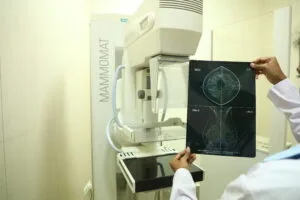Ultrasound Scan in Pregnancy : Why & When

Ultrasound scan is an important part of monitoring a pregnancy.
Ultrasound scans have a multitude of uses in pregnancy, some of which are:
- To confirm the pregnancy and estimate the possible date of delivery
- To check whether you have more than one baby
- To monitor the well-being of the baby and detect certain physical defects
- To show the position of the baby and the placenta
Knowing when to go for ultrasound scans in pregnancy is very important:
- Between 6 and 9 weeks: This is the dating and viability scan, which gives you the correct due date and this is when the baby’s heartbeat is detected for the first time.
- Between 11 and 14 weeks: This is the nuchal translucency (NT) scan, usually combined with a dual marker blood test. It is done to assess the risk of Down’s syndrome.
- Between 18 and 20 weeks: This is the anomaly scan done to check if the baby is developing normally and does not have certain structural defects.
- Between 28 and 32 weeks: This is a growth scan to show the growth pattern of the baby.
- Between 36 and 40 weeks: A final growth scan and colour doppler scan is done to assess the baby’s position, weight and blood flow.
A fetal echocardiography scan is done between 20 and 24 weeks if there is any suspicion of heart defects in the baby.
Apart from the scans mentioned above, more scans may be required if you are carrying twins or have any complications in your pregnancy.
Ultrasounds tell you about the health and growth of the baby and help with a lot of congenital (from birth) conditions, if any.
REMEMBER:
- Ultrasound scans are safe, painless and there are no adverse effects on the mother or fetus.
- Using ultrasound scans or any other method to find out a baby’s gender before birth is illegal and is a punishable offense in India.
[post_date]
[Sassy_Social_Share]



